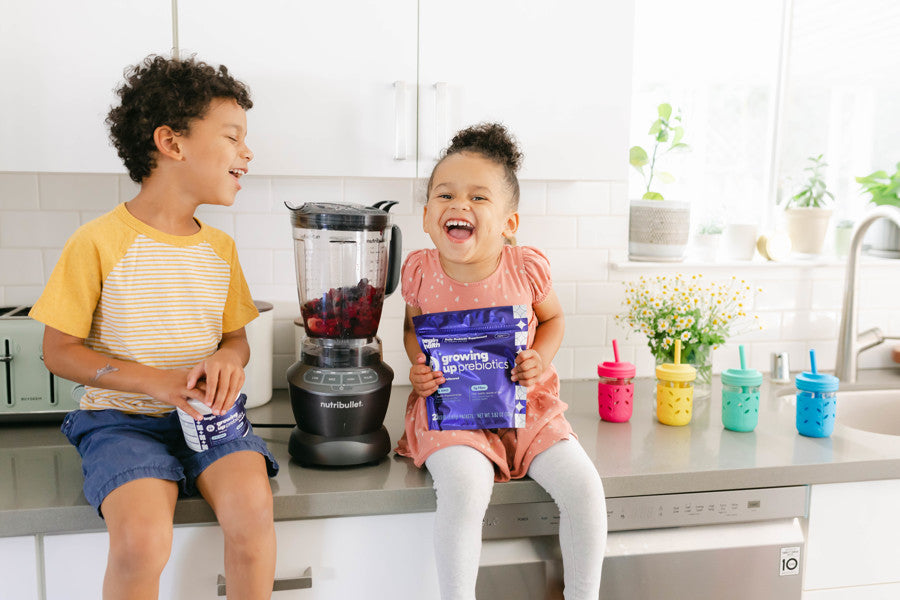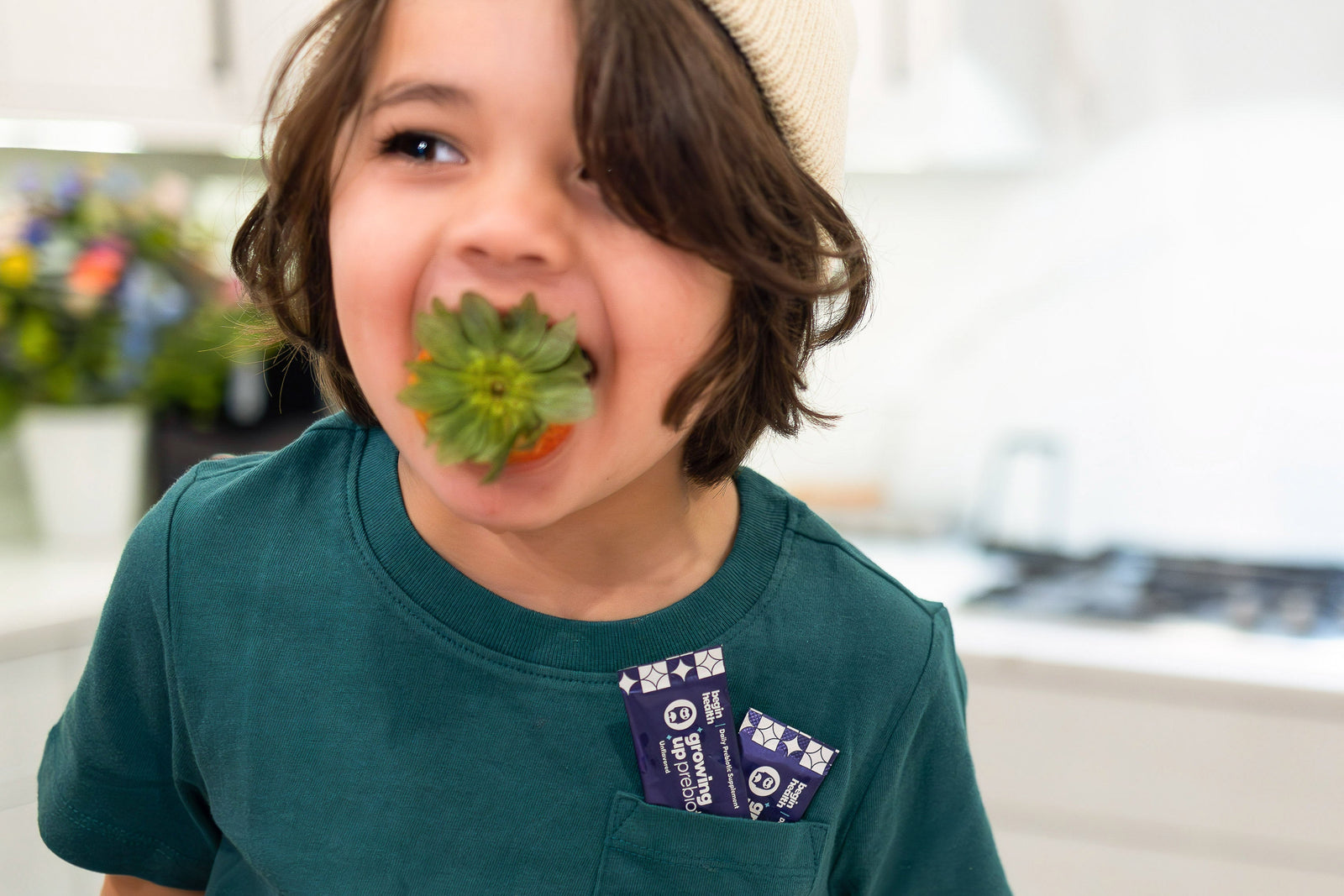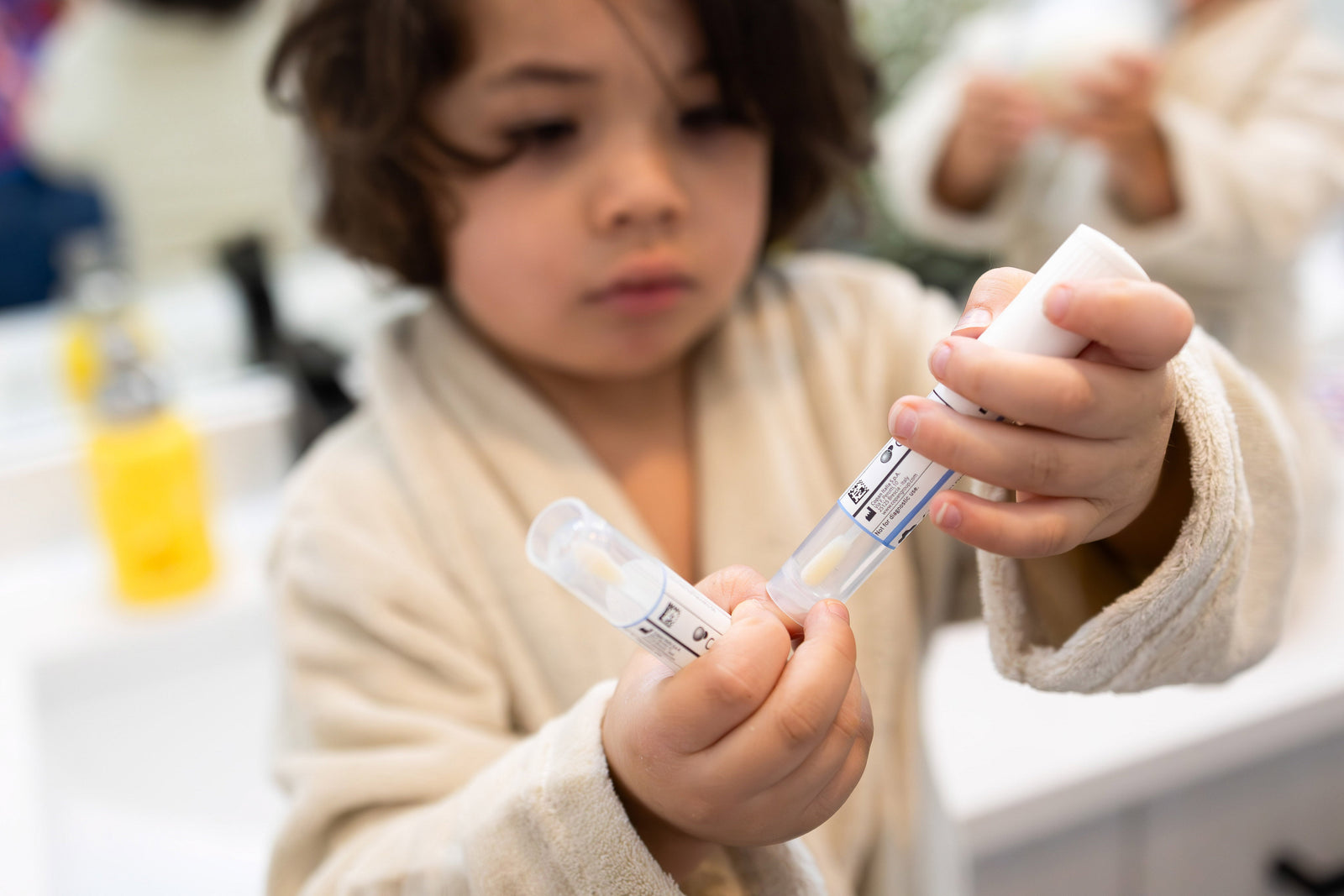Your Cart is Empty
Continue shoppingKid's Stress & How The Gut Plays A Role
Medically reviewed by Dr. Nicole Avena | Published October 13, 2022
share this article
Children in the US are becoming more and more stressed out. Between environmental stressors from family, friends, and peers, to having their grade at stake or a big school project, every child has feelings of stress from time to time. And it’s normal- stress is a response to changes and challenges. In small amounts, stress can help children adapt to differences in life and give them just enough boost to keep them motivated.
Stress
[1] Stress can be harmful when it becomes chronic. Think about it like a house. If the rooms in the house are constantly going up in flames, there’s no way to escape. But, if the food your cooking starts to burn and there’s a fire extinguisher nearby, then there are ways to manage the fire. In recent research, scientists have found a close connection to poor diet and “bad” stress.
Mental And Digestive Health
[2] This linked mental health to digestive health, a finding on the forefront of children’s mental health treatment.
[3] In the past few years, we have seen a strive towards more mental health care in children, yet not many doctors are discussing gut health and dietary choices with parents, especially if their child is growing on their quartile. Poor dietary choices provided by a caregiver or school can include highly processed carbohydrates, excess amounts of added sugar, and overconsumption of saturated fats. These aspects of a child’s diet leave little room for healthy fats, fruit and vegetable fiber, and high-quality protein, which in turn benefit mental health and gut health to prevent stress. Diet is just one aspect in mental health and gut health. The gut brain connection has been studied for many years. Scientists are just now starting to realize the importance of beneficial bacteria to stress levels and vice versa in children of all ages. Stress causes uncontrolled growth of bad bacteria, and in turn bad bacteria can lead to further stress and mental health issues.
Daily reads to help your little ones lead happier and healthier lives.
Buy Now
Join the
Happy Gut Club
Prebiotics
[4] Prebiotics can be a beneficial part in building your child’s gut microbiota. In other words, you want to build up your child’s good bacteria in their gut, to outnumber the bad bacteria. When bad bacteria become overgrown from poor diet and stress, digestion becomes poor and your child may be at risk for other lifestyle diseases like obesity and diabetes. Overall, we see a response in the guts of those who consistently take a high-quality prebiotic paired with a healthy diet. And this isn’t just for children, adults can benefit from prebiotics as well. It’s never too late to start your daily regimen. Begin Health Growing Up Prebiotics is an ideal way to incorporate prebiotics into your child’s gut healthcare routine. By feeding the “good” bugs in our digestive system with the unique blend of Human Milk Oligosaccharides (HMOs) and fiber from chicory root inulin, Begin Health Growing Up Prebiotics is a great way to support your child’s gut health.
Summary
The gut brain connection is continually being studied and it’s clear that poor dietary choices affect your child’s physical and mental health. Increase the amount of healthy fats, fruits, veggies, and high-quality protein in your child’s diet with Growing Up Prebiotics to support the growth of healthy bacteria in their gut.

Author
Dr. Nicole Avena
Trending

Why Parents Are Choosing Prebiotics Over Stool Softeners for Kids
read now
Inc. Names Begin Health to Its 2025 List of the Fastest-Growing Private Companies in the Midwest
read now
Oxalates and Kids' Digestion: How High-Oxalate Foods Contribute to Constipation and Gut Discomfort
read now







